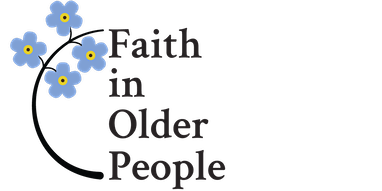I was a post-war baby. In recent years I’ve realised just how much the war and its aftermath shaped the atmosphere of the world I grew up in. I knew there had been a war but could never understand why everyone spent so much time talking about it. I now know, of course, that whilst 10 years may seem an eternity to a small child it is the merest blink of an eye to older people. Six years of warfare, its losses and deprivations, its emotional intensity and sheer horror was a life-shaping experience for the generation before mine – and it left a long shadow.
A pandemic is not the same as a world war, this is true, but it too will leave a long shadow. Children just now coming to a conscious awareness of their surroundings, children born ten, even fifteen years from now, will wonder what all the fuss is about. And they will be told, as I was, ‘You had to live through it to know what we’re talking about.’
Well, I have lived through it (at least thus far) but whether I yet know what I’m talking about remains to be seen. Perhaps the dust raised by such a momentous event inevitably takes a long time to settle. All I know is that our lives have been irretrievably changed by the experience, not least by the abrupt way they were interrupted.
It is easy enough to catalogue the negatives. Millions left bereaved, disabled, anxious and afraid. Jobs lost; job prospects damaged. Stress, isolation, unpredictability leading to odd behaviour, impatience, resentfulness. It has pressed hard upon our physical and mental health; financially too we are stretched and there’s the danger that those at the bottom of the pile and in the poorest parts of the world will suffer most.
Yet there have been positives too. We have applauded countless acts of spontaneous kindness, the skill and selflessness of our nurses and doctors, the brilliance of our scientists. Such achievements may be commonplace, but it has taken a pandemic to persuade the press to report them.
And we have found ourselves reflecting on deeper things and wondering whether the values of our society are skewed and misguided. During the first lockdown, we discovered that when traffic stops the air gets cleaner; that with the (political) will to do so we can close roads, build cycle paths, pay people’s wages, and house the homeless. We affirmed that Black Lives Matter and that violence against women must stop. We even dared to believe that it might be possible to take the decisions needed to avert the climate crisis.
One of the most basic lessons we re-learned was that people matter; not in some abstract sense, but that other people matter to us. That it is in our relationships with others that we are made and that their love, their interaction with us, their ways of touching us, reflects us back to ourselves. This is true for all of us, as we have long known its truth for those living with dementia.
When have we been at our happiest during these months? For myself, I think of long-awaited opportunities to sit in our garden with friends and family, chilled to the bone and warmed to the heart. I think of meals around the table. I think of the first invitation to sing in church once again and the opportunity to gaze into people’s eyes above their masks. If there is some chance that we remember this, some chance that we might bore our grandchildren with tales of how ‘everyone pulled together’ then there is some chance too that the most profound lessons of the pandemic will be learned.
Whether, in our eager rush back to ‘normality’, we can continue to uphold these soft virtues of common decency remains to be seen. After all, we have long known that market forces have to be controlled, that we have more than enough resources in the world to eradicate poverty, whilst being reluctant to do anything about it. But, for the moment, I am remaining hopeful if not always optimistic.
The world has changed and the world must change if we are to save our planet. What the pandemic has taught us is that such changes need not be feared but may ultimately lead to what Jesus described as fullness of life – a life lived in the knowledge of where our true happiness lies.
+John
The Rt Rev Dr John Armes
Bishop of Edinburgh
November 2021

